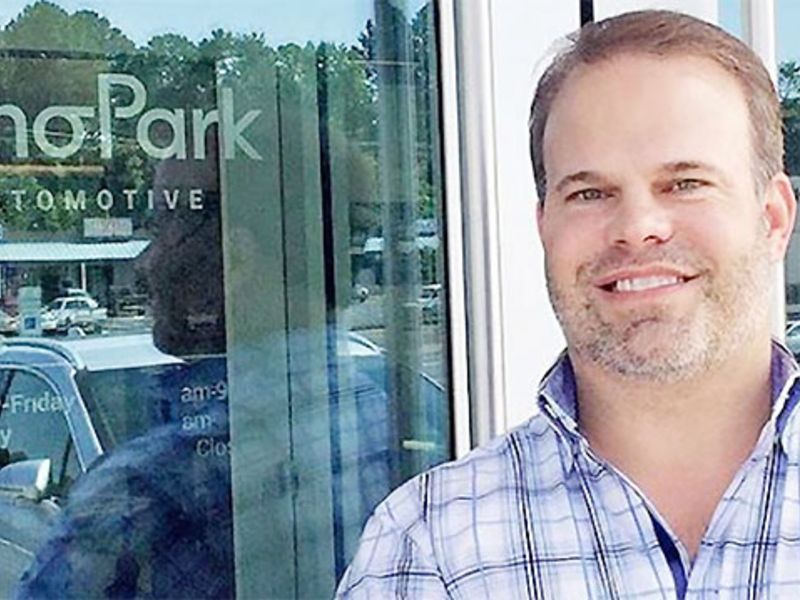
In the months after Sonic Automotive Inc. CEO David Smith was arrested on assault charges, at least nine law firms said they had launched investigations into the publicly traded dealership group and shareholder claims that company executives or board directors may have breached their fiduciary duties or engaged in securities fraud.
But that scrutiny — often a precursor to shareholder lawsuits — could fizzle out now that the charges against Smith, 46, have been dropped.
Prosecutors in Mecklenburg County, N.C., on March 12 dismissed all charges against Smith, less than two weeks after a county grand jury indicted him on counts of felony assault by strangulation and misdemeanors of false imprisonment, assault on a female and interfering with emergency communication.
One corporate governance expert told Automotive News that even if a shareholder lawsuit were to be filed against Sonic — the nation’s sixth-largest new-vehicle retailer — it could be difficult to prove harm.
“From a securities law standpoint, it would seem to me to be a bit of a tough claim, particularly if he was exonerated,” said Charles Elson, a University of Delaware finance professor who specializes in corporate governance issues.
Automotive News and media in Charlotte, N.C., where Sonic is based, have reported on Smith’s Oct. 5 arrest and overnight jail stay. And a Feb. 18 Bloomberg story explored questions around corporate governance and the reaction of Sonic’s board to Smith’s arrest.
“In a securities issue, the question is that the public should — anybody buying or selling stock should — be aware of all material circumstances,” Elson said. “And if Bloomberg reported it, it was out there. It wasn’t a secret.”
Messages were left seeking comment with three New York law firms that over the past month have issued press releases about their investigations into Sonic: the Rosen Law Firm, Faruqi & Faruqi and Pomerantz. Rosen, in its Feb. 18 release, said it was looking into claims that Sonic management might have “issued materially misleading business information to the investing public.”
On Oct. 7, Sonic’s board issued a statement saying it remained “steadfast” in support of Smith. The board is led by Executive Chairman Bruton Smith, Sonic’s co-founder and David Smith’s father.
“We believe in David’s leadership, honesty and transparency, which he has demonstrated throughout his tenure as chief executive officer and over 20 years of service to the company,” the statement said. “David has informed the board that he is innocent of these charges and expects to be fully exonerated.”
Sonic last week declined to comment.
Smith had not been arraigned, and his lawyer George Laughrun had said that Smith would plead not guilty.
Elson said Sonic’s board likely reviewed whether the charges Smith faced would have prevented him from carrying out his duties. “And if the answer is no, then you have to kind of let the process play itself out,” Elson said.
Smith’s arrest came after a 22-year-old woman, not related to Smith, told the Charlotte-Mecklenburg Police Department that she was assaulted and restrained at a Charlotte home. An arrest warrant stated the woman had injuries including redness around her neck and scratch marks and had experienced trouble breathing after Smith allegedly put his hands around her neck and squeezed for 15 to 20 seconds.
In a 911 call obtained by Automotive News, the woman described Smith as her ex-fiance and said Smith hit her and she was bleeding. “He was really violent and screaming and knocked me to the ground,” the woman said, at times sobbing during the call.
In 2001, when Smith worked for Sonic in a lower-level position, he was convicted in Mecklenburg County of misdemeanor assault and battery and injury to personal property stemming from a 1999 boating incident. Smith appealed the conviction to the North Carolina Court of Appeals and lost. He was given a 30-day jail sentence that was suspended and was placed on probation for 18 months. He also was ordered to pay fines, costs and restitution and to take an anger management class, according to court records.
In the recent case against Smith, the district attorney’s office said in a March 12 court filing that, after consulting with the victim, it had determined that “the state does not have a reasonable likelihood of success of proving each of the elements of this offense beyond a reasonable doubt at trial.”
Smith’s lawyer praised the decision. “We appreciate that the district attorney’s office reviewed the entire sequence of events and elected to take the action it determined was appropriate,” Laughrun said in a news release. “The outcome confirms Mr. Smith’s belief in the justice system, and he is obviously pleased that the charges have been dismissed.”

